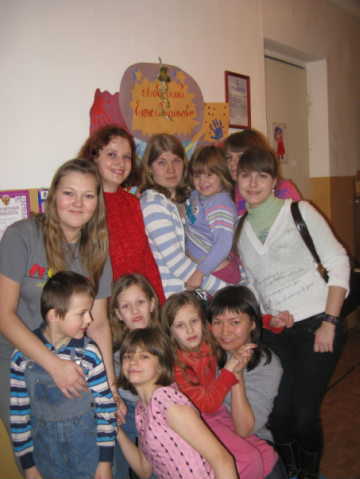Lev Shlosberg and Saria Saburskaya, Ombudsperson of the Republic of Tatarstan, defend arrested activists Yelena Izotova and Anatoly Malov
Press Release 3.02, 2020
Photo: Lev Shlosberg and Yelena Izotova
On 16 January, Lev Shlosberg, MP of the Pskov Regional Assembly of Deputies and member of the Yabloko’s Federal Political Committee, addressed Sariya Saburskaya, Commissioner for Human Rights in the Republic of Tatarstan, in connection with administrative arrests of Yelena Izotova, leader of the Yabloko’s Green Russia faction in the Republic of Tatarstan and eco-activist, and civil activist Anatoly Malov.
Kazan environmental activists held a series of one-person pickets (that do not require any permissions from the authorities) for the resignation of Artyom Khokhorin, Minister of Internal Affairs of the Republic of Tatarstan, after the police violent dispersal of the Dyoksinovo tent camp. The Dioxinovo camp is a tent camp organised by opponents of the construction of an incinerator near the village of Osinovo who require introduction of separate collection and recycling of garbage. The camp was set up right on the way of construction machinery paving access roads to a future incinerator in the middle of the field. The camp was set up on 2 December, 2019, and dispersed on 16 December, 2019.
According to the Agora group, on the day the camp was dispersed, law enforcement officers detained 19 people, including Vera Kerpel, member of the Yabloko party, who received 18.41 per cent of the vote (second place) in the by-elections State Duma on 8 September, 2019.
On 14 January, 2020, police officers detained Yelena Izotova in Kazan for her one-person picket demanding resignation of Artyom Khokhorin, Minister of Internal Affairs for Tatarstan, which Izotova held on 26 December, 2019. During her one person picket, Izotova stood with the banner “The police must protect the rights of citizens, and not fight against them. Khokhorin must resign”.
Izotova was released from the police station on 14 January, 2020, charged with obligation to appear before court the next day. On 15 January, the court charged Yelena Izotova with violation of the procedure for holding a public event, despite the fact that she had participated in a one-person picket which required no permission from the authorities.
Izotova was brought to administrative responsibility under Article 20.2 Part 2 of the Code of Administrative Offenses of the Russian Federation (“Organisation or holding of a public event without giving notice of a public event in the prescribed manner”), stating that a person who photographed Izotova was a picket participant too. The court sentenced Izotova to five days in prison.
After the court session ended, Izotova was taken to a special detention centre.
In his appeal, Lev Shlosberg noted that Yelena Izotova complained of poor health. On the way to the special detention centre, she was examined in a hospital, and inflammation of the appendages was diagnosed. Despite the disease, she was not left in the hospital, but was escorted to the isolation ward. Izotova spent several hours in a cold special vehicle, while the formalities of bringing her to the isolator were being decided. Izotova was held in a cell where she was feeling unwell. According to her friends and colleagues, no aid was provided to her.
According to Shlosberg, Yelena Izotova was brought to administrative responsibility unlawfully, since the picket was a one person picket, and Izotova did not violate the established requirements for mass events. At the same time, the Shlosberg noted that the actions of the police authorities could be regarded as abuse of power and violation of the legislation of the Russian Federation. Separately, Shlosberg noted that he considered Izotova to be a victim due to unconstitutional actions of the state authorities of the Republic of Tatarstan. Shlosberg asked to check the circumstances of the detention of Izotova and subsequent events related to this.
Lev Shlosberg also sent a similar appeal regarding the detention of environmental activist Anatoly Malov.
Anatoly Malov was detained near the police station, where he came to support Yelena Izotova, who was detained earlier on January 14. Malov was accused of disobedience to police officers. After the arrest, Anatoly Malov was left at the police station until trial. Together with him, the police detained until morning Irina Nikiforova and Vera Kerpel. Later, the court imposed a fine of 1,000 roubles for Nikiforova and 30 hours of community service for Kerpel. Malov was imposed ten days of arrest for “disobedience to lawful orders of the police”.
Lev Shlosberg believes that Anatoly Malov was brought to administrative responsibility unlawfully and suggests that, most likely, he was a victim of a provocation by law enforcement officials. Shlosberg says that the police abused power and violated the laws of the Russian Federation. He considers the court decision unlawful.
Shlosberg separately noted that Anatoly Malov was deprived of the right to legal assistance during the consideration of his case in court and, probably, was also deprived of it at the time of his detention in the police station.
In his appeals, Lev Shlosberg asked Human Rights Ombudsman in the Republic of Tatarstan to immediately apply to the Public Prosecutor’s Office for verification of court decisions on bringing Izotova and Malov to administrative responsibility in order to achieve the abrogation of unlawful court decisions.
Shlosberg also asked the Ombudsperson to demand that meetings with Izotova and Malov in order to check on their state of health and the conditions of their detention.
The next day, on 17 January, Saria Saburskaya met with Yelena Izotova and Alexei Malov in the special detention centre.
Izotova complained to Saburskaya about the actions of the police during the arrest, the judge at the trial and the conditions of detention. Izotova said that she felt sick at night in the cell, had to call an ambulance, because she started to suffocate due to smoking of four of her cellmates, ambulance doctors took her to the infectious diseases hospital, but the doctors decided not to hospitalise the activist.
At the request of the Ombudsperons, Izotova was transferred from the cell, where four smoking women were kept with her, to another cell, where she was kept alone. This has improved Izotova’s state of health.
The Supreme Court of Tatarstan upheld the decision of the Vakhitovsky district court of Kazan, both for Izotova and Malov, but judge Ramil Malikov took into account the time during which the activists were detained in the police department. However, Izotova and Malov were not delivered to the Supreme Court of the Republic of Tatarstan for consideration of the complaint and the trials were held in their absence.
In protest against court decisions, Izotova went on a hunger strike. “For three days already Yelena has been refusing food and only drinks water. Her well-being leaves much to be desired. The chronic disease worsened, but the ambulance refused to hospitalize her,” Izotova’s friends said.
At present, both activists have been released from the detention centre after the expiration of the arrest period.
The authorities of the Republic of Tatarstan distanced themselves from the story of the arrests of environmental activists, but made a standby statement through the press service on their readiness to continue the “dialogue” with the protesters, whose leaders were under arrest then.
On 23 January, Saria Saburskaya, Commissioner for Human Rights in the Republic of Tatarstan, officially informed the deputy Lev Shlosberg that she had sent appeals to the Public Prosecutor of the Republic of Tatarstan, annexing to ir Shlosberg’s appeals to conduct a check on the merits.
Saria Saburskaya also said that at her request, after visiting Izotova, on the basis of complaints from the arrested, she was provided with two blankets and hot drinking, she was also given the parcels from her relatives, and on 18 January she was transferred to a non-smoking cell. The Commissioner confirmed that during the detention in the special detention centre ambulance was repeatedly called to Izotova, medical assistance was provided, but without hospitalisation.
At the suggestion of the Commissioner, Anatoly Malov sent an appeal to her name, which was also sent for consideration to the Public Prosecutor of the Republic of Tatarstan.
Saria Saburskaya informed Lev Shlossberg that the Public Prosecutor’s Office of the Republic of Tatarstan would notify the deputy of the results of the check on the cases of Izotova and Malov.
Posted: February 3rd, 2020 under Environmental Policies, Freedom of Assembly, Freedom of Speech, Human Rights, Protection of Environment.










